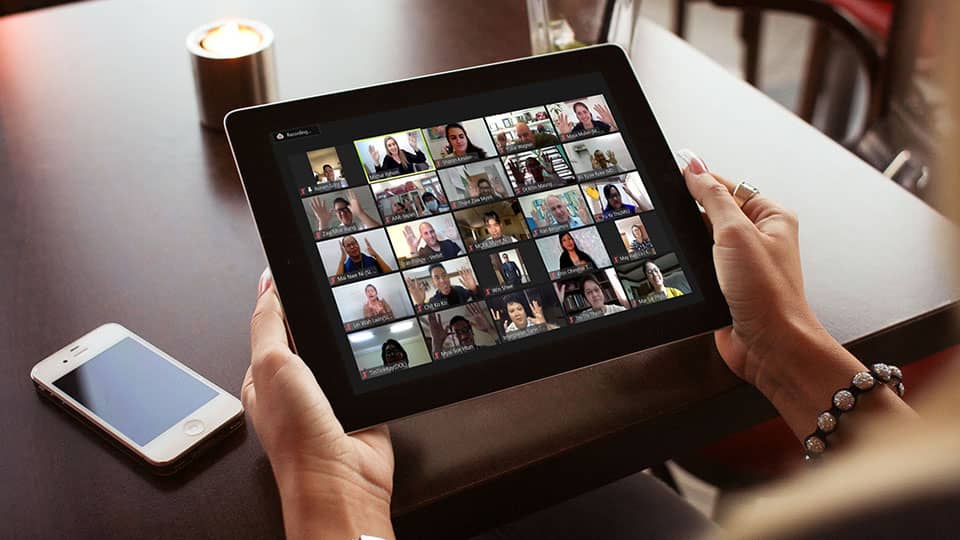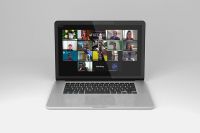Bringing Assistive Technologies for B2C Services to Myanmar

On 12 January, the Embassy of Israel in Myanmar in collaboration with the Myanmar Centre for Responsible Business (MCRB), Myanmar-Israel Chamber of Commerce, Industry and Innovation (MICCI), and Access Israel held a webinar to share experiences on the role of businesses in making their products and/or services more accessible and inclusive for persons with disabilities in Myanmar. This followed on from an earlier webinar which made the business case for why persons with disabilities should be employed, of which the Myanmar language video available, with a captioned English language version to follow.
The second webinar on “Technologies for Business to Consumer Services: Making it Possible” was attended by 70 participants, most of whom represented small-to-medium sized Myanmar companies and disability rights organisations. The main objective was to raise awareness of available assistive technologies and to discuss how such technologies can and are being used to increase employment opportunities for persons with disabilities both in Myanmar and in Israel. The 2-hour session was accompanied by simultaneous captioning in Burmese and English (provided by Verbit) alongside continuous sign language interpretation in Burmese.
Following introductions by Ambassador Ronen Gil-Or, Vicky Bowman, MCRB Director and Michal Ramon, CEO of Access Israel, Christopher Lee, Managing Director of the International Association of Accessibility Professionals (IAAP) gave an interesting keynote speech on Website Accessibility. IAAP is a non-profit network that enables the creation and uptake of accessible products, content, services, and environments.
Christopher Lee shared a Smart Business for all Benchmarking Tool (SB4All) which allows businesses to be benchmarked based on the progress they are making in terms of implementing digital accessibility policies and programs. He emphasized the need for businesses to understand their users, as well as the concept of Universal Design, defined in the Convention of the Rights of Persons with Disabilities as “the design of products, environments, programmes and services to be usable by all people, to the greatest extent possible, without the need for adaptation or specialized design’. Vicky Bowman noted that Universal Design linked to ‘Dignity by Design’ approach, developed by MCRB’s co-founder, the Institute for Human Rights and Business (IHRB) whose application to Myanmar’s built environment is being explored by MCRB.
Three Israeli companies then showcased various technologies to improve accessibility:
-
Eran Fishov explained that Verbit’s AI Technology generates reliable transcription and captioning solutions for pre-recorded and live sessions, which have proven to be useful in the education, media and legal sectors, particularly during COVID-19. He highlighted how this could be useful for implementation of Myanmar’s National Education Strategic Plan.
-
Maya Huber presented Skillset’s platform: an inclusive and accessible job compatibility simulation platform that aims to expand hiring opportunities by providing job seekers and companies with data that profiles them on the basis of proven performance skills and not cv-based experience. The latter approach tends to disadvantage persons with disabilities when it comes to applying for jobs, so using data on capability can be life-changing for job seekers.
-
Nir Aran explained how Acoustic Protocol converts public address announcements (in real time) into personalized messages that people are able to receive on their mobile phones. In doing so, images, written text, augmented replay and other forms of acoustic feedback are made universal. The recipient is then able to replay and enhance, while the console will adapt based on the recipient’s preference for receiving acoustic feedback.
A panel discussion moderated by Dr. Zaw Moe Aung of The Leprosy Mission Myanmar (TLMM), included Yu Ya Thu, Director of the Myanmar Independent Living Initiative (MILI), Win Shwe, Developer of Myanmar Assistive Technology Center, and Kyaw Kyaw, Program Director of the Myanmar Deaf Community Association (MDCA). Panellists explained the struggles that persons with disabilities in Myanmar are facing, including lack of lack of ramps in Yangon city and limited access to technologies for persons with hearing and visual impairments, while noting that the shift from use of Zawgyi font to Unicode-based Myanmar fonts would accelerate the scope for using technologies such as screen readers for Myanmar language texts. They noted a handful of companies in Myanmar that do offer access for people with visual impairments, including Grab, Telenor, MPT, Wave Money, CB Bank and KBZ Bank.
Read also
- Video on Disability from I Am Me
- Handbook for Employers on Employing Persons with Disabilities in Myanmar
- MCRB Promotes the Third Networking Event by MSMEs Led/Involved by Persons With Disabilities
- Discussing ‘Dignity By Design’ in Myanmar’s Built Environment
- Virtual Roundtable Discussion with CSOs on Extractives and Inclusive Business
 English
English မြန်မာ
မြန်မာ မြန်မာ (unicode)
မြန်မာ (unicode)








